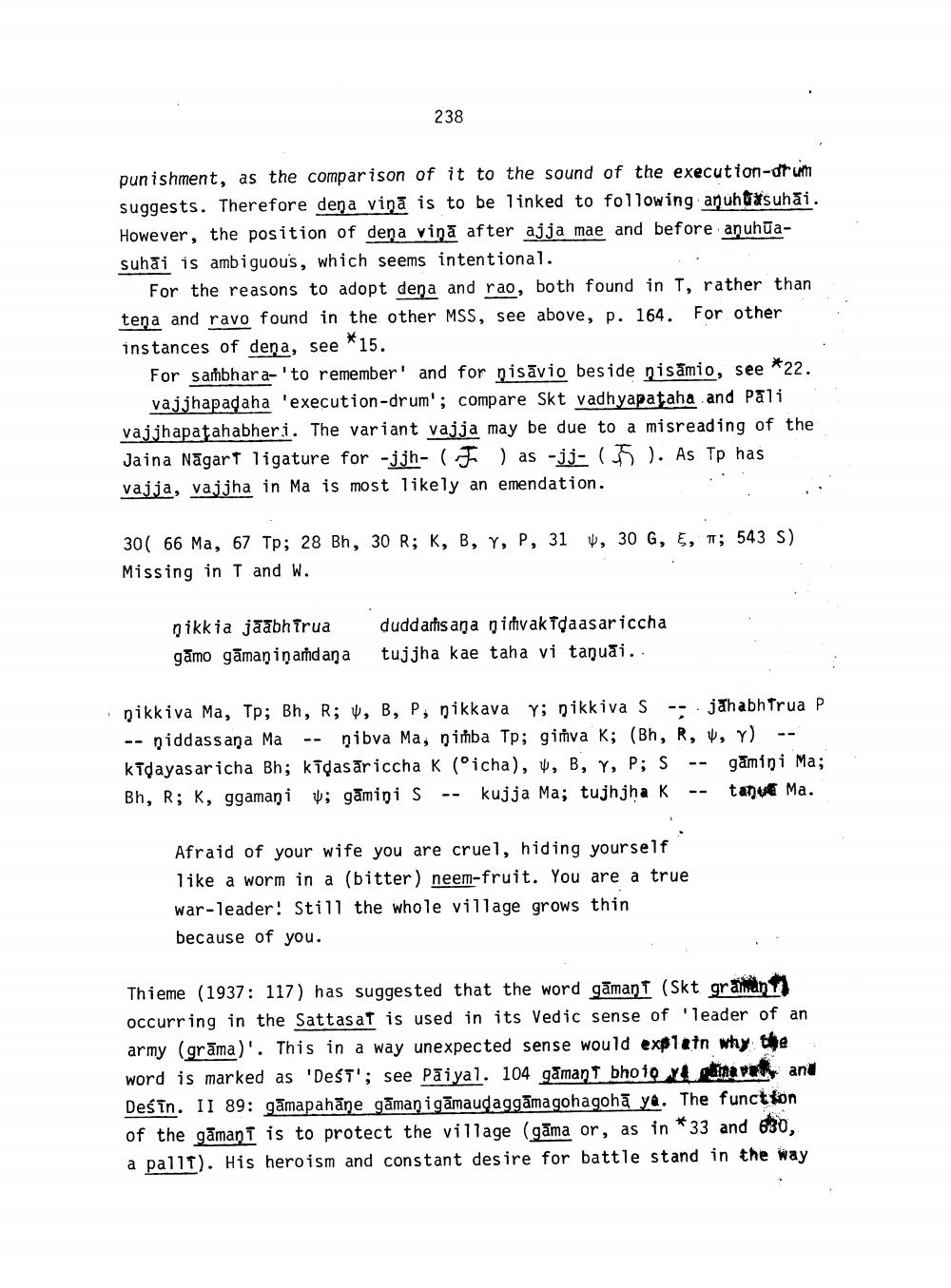________________
238
punishment, as the comparison of it to the sound of the execution-ut um suggests. Therefore deņa viņā is to be linked to following anuht&suhāi. However, the position of deņa viņā after ajja mae and before anuhūasuhai is ambiguous, which seems intentional.
For the reasons to adopt deņa and rao, both found in T, rather than tena and ravo found in the other MSS, see above, p. 164. For other instances of dena, see *15.
For sabhara-'to remember and for nisavio beside nisāmio, see *22.
vajjhapadaha 'execution-drum'; compare Skt vadhyapataha and Pali vajjhapațahabheri. The variant vajja may be due to a misreading of the Jaina Nagart ligature for -jjh- ( 5 ) as -jj- ( 5 ). As Tp has vajja, vajjha in Ma is most likely an emendation.
30( 66 Ma, 67 Tp; 28 Bh, 30 R; K, B, Y, P, 31 W, 30 G, 5, ; 543 s) Missing in T and W.
nikkia jāābh Trua gāmo gāmaniņandana
duddarhs ana nimyakidaasariccha tujjha kae taha vi tanuāi.
nikkiva Ma, Tp; Bh, R; U, B, P, nikkava Y; nikkiva S -- jāhabh Trua P -- niddass ana Ma -- nibva Ma, nimba Tp; gimva K; (Bh, R, V, Y) -- kīdayas ar icha Bh; kīdas āriccha K (°icha), , B, Y, P; S -- gāmiņi Ma; Bh, R; K, ggamani v; gāmini S -- kujja Ma; tujhjha K -- tave Ma.
Afraid of your wife you are cruel, hiding yourself like a worm in a (bitter) neem-fruit. You are a true war-leader! Still the whole village grows thin because of you.
Thieme (1937: 117) has suggested that the word gāmaŋt (Skt graman occurring in the Sattas at is used in its Vedic sense of 'leader of an army (grāma)'. This in a way unexpected sense would explain why the word is marked as 'Dest'; see Pāiyal. 104 gāmant bhojo daina vady and Desin. II 89: gāmapahāne gāmaņi gānaudaggāmagohagohā ya. The function of the gāmani is to protect the village (gāma or, as in *33 and 630, a pallt). His heroism and constant desire for battle stand in the way




